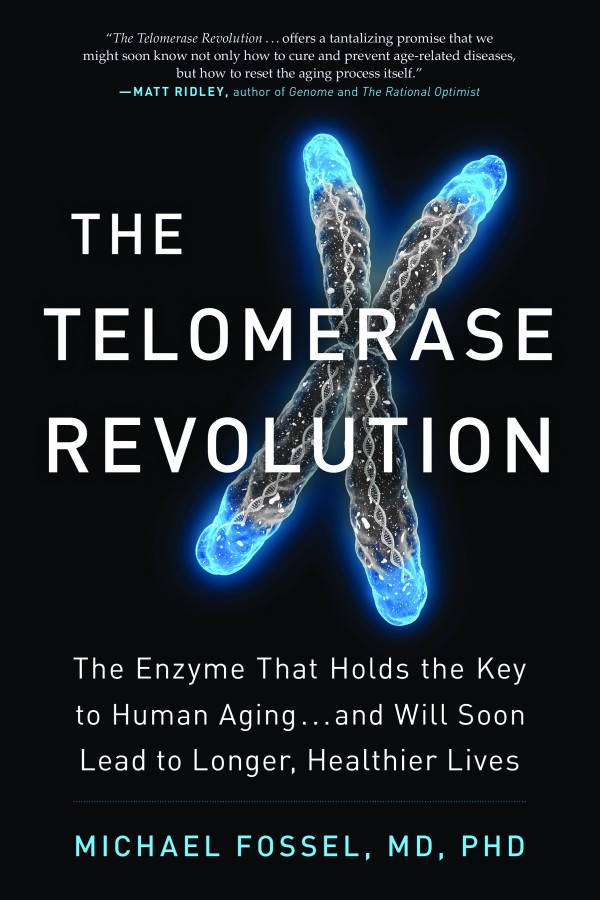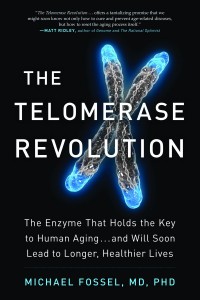Wall Street Journal Names Fossel ’73 Book a “Best Book for Science Lovers”

 The latest book by Michael Fossel ’73, The Telomerase Revolution: The Enzyme That Holds the Key to Human Aging . . . and Will Soon Lead to Longer, Healthier Lives, published by BenBella Books, was recently selected as one of the Best Books for Science Lovers in 2015 by the Wall Street Journal. Fossel has been writing about the telomerase theory of aging for 20 years and is considered the foremost expert on the clinical use of telomerase for age-related diseases.
The latest book by Michael Fossel ’73, The Telomerase Revolution: The Enzyme That Holds the Key to Human Aging . . . and Will Soon Lead to Longer, Healthier Lives, published by BenBella Books, was recently selected as one of the Best Books for Science Lovers in 2015 by the Wall Street Journal. Fossel has been writing about the telomerase theory of aging for 20 years and is considered the foremost expert on the clinical use of telomerase for age-related diseases.
“As a doctor, my emphasis has always been on clinical results,” says Fossel in his introduction. “Understanding the nature of aging is essential, of course. But the goal isn’t simply to achieve understanding. The goal is to develop techniques to extend lives, cure diseases, and reduce suffering.”
Each time a cell reproduces, its telomeres (the tips of the chromosomes) shorten, decreasing the cell’s ability to repair its molecules. While most of our cells age in such a way, sex cells and stem cells can reproduce indefinitely, without aging, because they create telomerase, which re-lengthens the telomeres and keeps the cells young. In The Telomerase Revolution, Fossel describes how telomerase might soon be used as a powerful therapeutic tool, with the potential to extend lifespans and maybe even reverse human aging.
Fossel earned both his PhD and MD from Stanford University, where he taught neurobiology and research methods. A past recipient of a National Science Foundation fellowship, he was a clinical professor of medicine for almost 30 years, executive director of the American Aging Association and the founding editor of Rejuvenation Research. He wrote the first ever book on the telomerase theory of aging, Reversing Human Aging (1996), followed by Cells, Aging, and Human Disease (2004), and The Immortality Edge (2011). He currently teaches The Biology of Aging at Grand Valley State University in Allendale, Mich., and is working to bring telomerase to human trials for Alzheimer’s disease.

